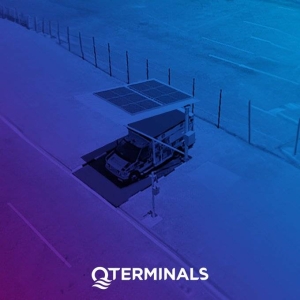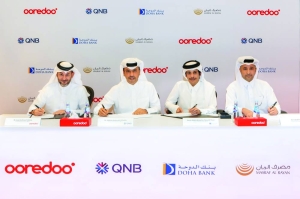QTerminals installs photovoltaic system to reduce CO2 emissions


QTerminals installs a 3,300Wp (watt-peak) photovoltaic (PV) system
This comes as part of its strategy to reduce CO2 or carbon dioxide emissions in its operations.
The panels at both locations can produce 9,010kWh, with 6,350kg of greenhouse gas emissions avoided annually. The generated power is used to light the parking bays and safety information boards.
The move is also seen as a reflection of Qatar’s abundant solar energy potential. The competitive costs of renewable technologies make the adoption of renewable energy technologies in Qatar and the region more attractive due to the decreased levelised cost of electricity production.
The cost of PV solar energy has dropped significantly from around 4 cents per kilowatt-hour in 2017 to about 1.5 cents in 2023, with expectations to decrease to around 1 cent per kilowatt-hour by 2030, Director of Production Planning and Business Development at Kahramaa Abdul Rahman Ibrahim al-Baker, had said earlier.
Hamad Port has added a range of environmentally friendly equipment designed to reduce CO2 emissions and enhance operational efficiency.
QTerminals was established in 2016 as a joint venture between the Qatar Ports Management Company (Mwani Qatar) and Milaha.
QTerminals recently became the first company in the Gulf Co-operation Council (GCC) region and third in Asia to have complied with the standards and recommendations of the Science-Based Targets Initiative (SBTi) within the maritime transport sector (ports and services).
QTerminals received the SBTi accreditation for commitment to reducing greenhouse gas emissions from its direct and indirect operations (Scopes 1 & 2) by 46.6% by 2030.
This commitment aligns with the Qatar National Vision 2030’s environmental development pillar, which focuses on preserving and protecting the environment, including air, land, marine, as well as biodiversity.







